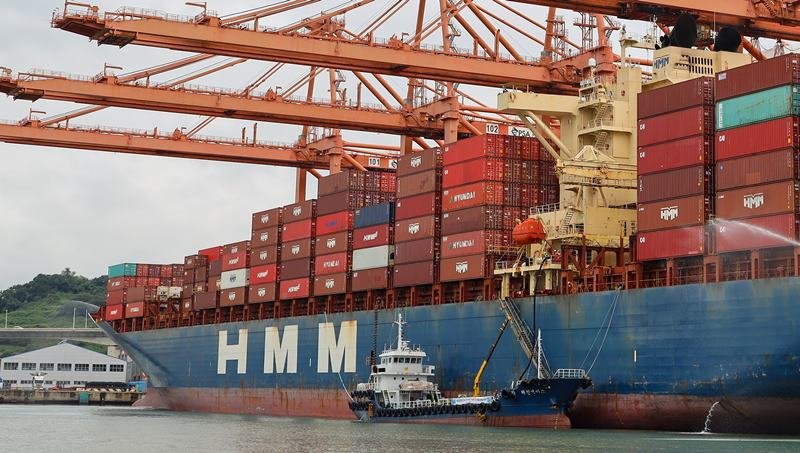HMM announced that it conducted a trial use of a sustainable marine biofuel on its 6,400TEU containership HMM TACOMA calling in Busan, South Korea.
HMM TACOMA, operated in FIL service connecting Far East, India and Latin America, was refuelled with the biofuel blend during its bunkering at the Port of Busan.
This marine biofuel, supplied by GS Caltex, consists of 30 percent biodiesel derived from used cooking oil and 70 percent high-sulfur fuel oil (HSFO), reducing greenhouse gas emissions by 24% compared to conventional fuels. Biofuel has the merit of being compatible with current ship engines without technological modification.
HMM plans to expand the use of biofuel gradually, reaching about 5-10% of annual fuel consumption. Despite the higher cost of biofuel, HMM remains committed to heavily investing in the pathway to carbon neutrality, including the introduction of clean alternative energies.
An HMM official said, “We continue to find a way to go green, making meaningful progress toward a carbon-free future. To this end, we will seek to enhance our environmental competence and thereby be positioned as a top-rated carrier in responding to climate issues.”
Last April, HMM signed a Memorandum of Understanding (MoU) with GS Caltex to secure marine biofuels.
Meanwhile, HMM has strived to extend its reach to the environmental field.
In 2021, HMM completed the first test voyage using biofuel on its 13,100TEU containership HMM DREAM. HMM used a 20% biofuel blend at the time based on very low-sulfur fuel oil (VLSFO).
In February this year, HMM signed newbuilding contracts for nine 9,000 TEU methanol-powered vessels and, last April, reinforced the partnership with LOTTE Fine Chemical to explore feasible solutions to the ammonia supply chain. The company is also preparing operational tests of an onboard carbon capture system (OCCS) for its containership.
Source HMM

